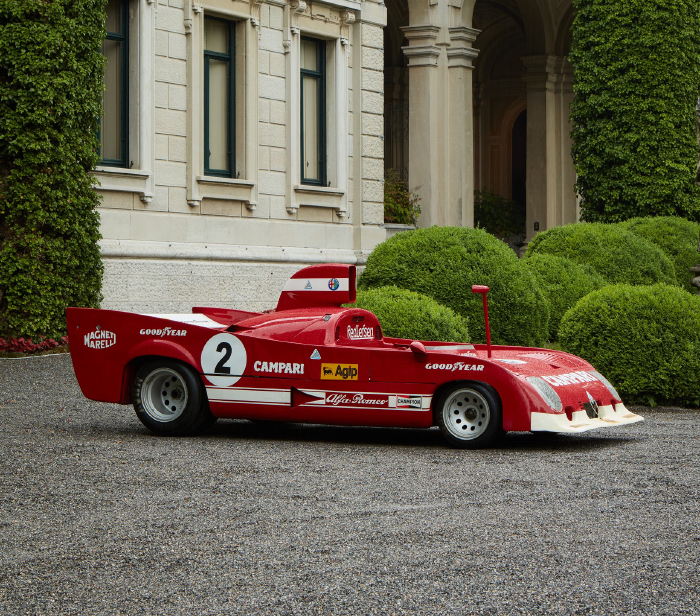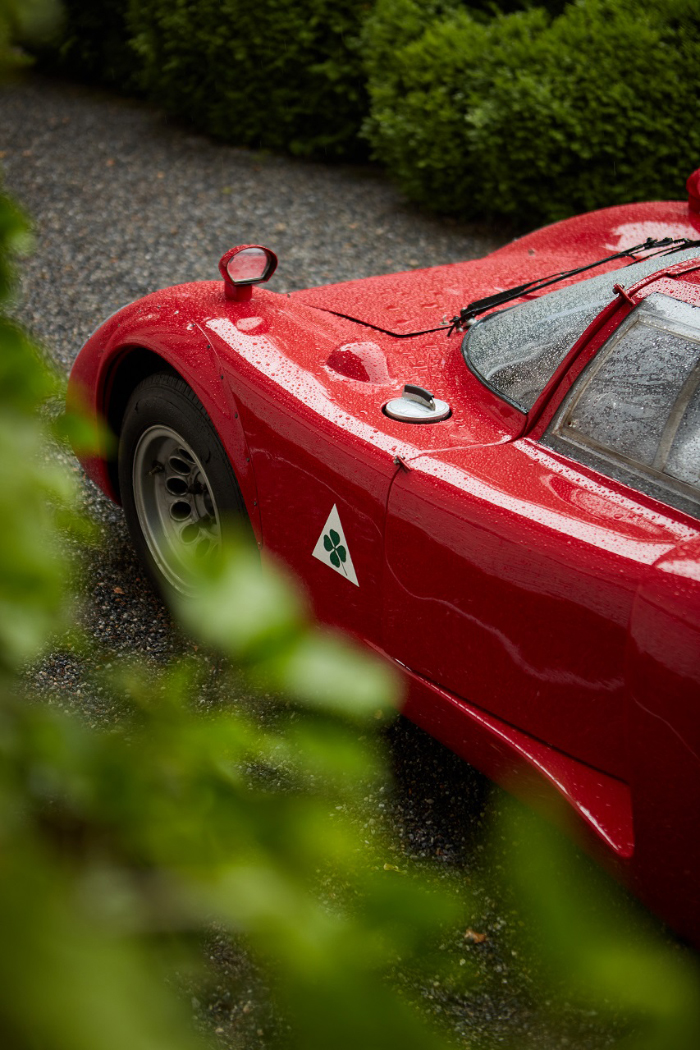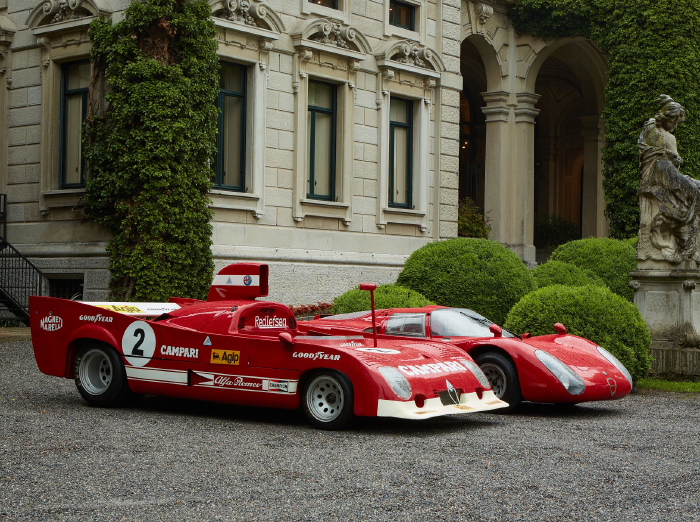An iconic location, forming part of the brand’s history
The bond between Alfa Romeo and the “Concorso d’Eleganza Villa d’Este” began with the profound connection between Milan – the birthplace of Alfa Romeo – and Lake Como, long the drawing room of the same city’s aristocracy, and a showcase for Italian excellence around the world. That same bond has stood the test of time and remains strong to this day. Even when the focus of the automotive world shifted to mass production and the Concorso d’Eleganza became the shining memory of an era never to be seen again, Villa d’Este lent its allure to photo shoots, events, presentations and gatherings, where many of the brand’s vintage and concept cars would receive prestigious awards.

The “Concorso d’Eleganza Villa d’Este” is one of the most prestigious events in the industry (the first dates back to 1929). This year, in addition to its traditional and aristocratic headquarters in Cernobbio, the event also involved the enchanting Villa Erba, where the centenary of the 24 Hours of Le Mans was celebrated. Hence the link with Alfa Romeo, which decided to exhibit two gems from its vintage collection, the 33/2-liter “Daytona” (1968) and the 33 TT 12 (1975), both of which featured on the French tarmac.

The Alfa Romeo 33/2-liter “Daytona” is the emblem of the noble sporting spirit of the brand which, after retiring from competition in 1951 after winning its second of two F1 World Championships with the “Alfetta” 158-159, returned to the international scene with Autodelta (1963), the Milan company’s official racing department, celebrating its 60thanniversary this year.

To follow its initial successes with touring cars, Autodelta decided to make the leap in quality in the “prototypes” category, starting with the “Tipo 33”.
The Sport prototypes were designed exclusively for racing, equipped with extremely sophisticated engines and chassis, and were produced in the limited numbers required for type approval. They were equipped with a refined and powerful two-liter 8-cylinder V-shaped central engine, delivering 270 hp and reaching almost 300 km/h.
The first version of the 33/2 (where 33 was the project number and 2 the displacement expressed in liters) won its debut race in March 1967, uphill at Fléron near Liège, Belgium: Alfa Romeo then launched itself in the World Sportscar Championship, taking prestigious victories in grueling endurance races, first of all at the 1968 24 Hours of Daytona, where it conquered the top three places in its class with the crews of Vaccarella-Schütz, Andretti-Bianchi, and Casoni-Biscardi-Zeccoli. This major victory led to the name of the renowned U.S. circuit becoming part of the moniker of the Alfa Romeo 33/2. The 33 also achieved excellent results at the 24 Hours of Le Mans – with another hat-trick in the class. In other competitions, it also made its mark in the overall standings, including ahead of much more powerful cars: this also happened at Mugello, where Vaccarella-Bianchi-Galli came in atop the podium.
The Progetto 33’s development was unceasing and finally in 1975 Alfa Romeo managed to make its dream come true by winning the World Championship for Brands. The star of this overwhelming superiority was the Alfa Romeo 33 TT (Tubular Chassis) 12, a car equipped with a three-liter 12-cylinder 180° V engine capable of delivering 500 hp and reaching 330 km/h. With great drivers, most of whom also featured in Formula 1, such as Arturo Merzario, Vittorio Brambilla, Jochen Mass, Jacques Laffite, Henri Pescarolo, Derek Bell, Jacky Ickx and Nino Vaccarella, the 33 TT 12 took victory in seven of eight races that counted towards the World Championship. The legendary 12-cylinder engine fitted to the car laid the foundations for Alfa Romeo’s return to F1 in 1976, as engine supplier for the Brabham team.


COMMENTS